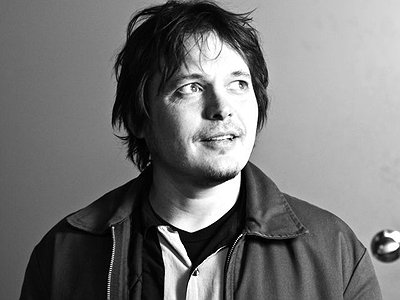How, would you say, could non-mainstream forms of music reach wider audiences?
I would say that they can't. Difficult music will always have a limited, sometimes 'cult' following. That said, it's important to think about artists such as Björk who are using elements of pop music together with very creative, forward-thinking ideas. But aside from the unusual phrasing, novel orchestration and unpredictable forms in her music, there are still the elements of 'pop', including singable melodies, beats and drama. In order to appeal to the masses one has to appeal to an immediacy; something graspable that can be enjoyed without a lot of effort. That is not a judgement. I certainly enjoy that kind of music. But I can't expect too much from too many people.
Usually, it is considered that it is the job of the artist to win over an audience. But listening is also an active, rather than just a passive process. How do you see the role of the listener in the musical communication process?
As I've alluded to earlier, the artist's job is not contingent upon the audience. Igor Stravinsky said it very well, 'The listener reacts and becomes a partner in the game, initiated by the creator. Nothing less, nothing more. The fact that the partner is free to accept or to refuse participation in the game does not automatically invest him with the authority of a judge.'
As a composer my aim is to win over myself. If I'm not happy or interested in my own music, if I don't want to hear it, then what is the point? I will never be able to win over everyone. There will always be those who loathe what I create or are apathetic towards it. The sooner an artist accepts that fact the better off he will be. But I am also a listener. I am also an audience member. And my role as such is to seek out and embrace what I enjoy and deal with it in my own personal way, whether that means to study it, use it to alter my mood, or simply enjoy it.
Reaching audiences usually involves reaching out to the press and possibly working with a PR company. What's your perspective on the promo system? In which way do music journalism and PR companies change the way music is perceived by the public?
I honestly have no idea how it works. I've put money into promotion that generated no results, and I've seen large turns-outs based solely on word of mouth. It takes the effort of the passionate audience member to seek out his desires. It takes a certain type of hunger.
Marketing and advertising work the same way they always have; by repetitively force-feeding the public until familiarity is unmistakable and a sense of worth is lost without being a part of what is popular. It works on all levels and has nothing to do with talent or quality. I continue to keep my ears open for inspiration. I read trade magazines and weekly listings and I actively seek out music, film and literature that will push me forward regardless of what is trendy or not. The public's perception of everything is altered by the simple fact that they are the public and not an individual.
Please recommend two artists to our readers which you feel deserve their attention.
Two of my favorite bands in Brooklyn are Little Women and Buke & Gase.
Read and hear more Trevor Dunn at www.trevordunn.net




